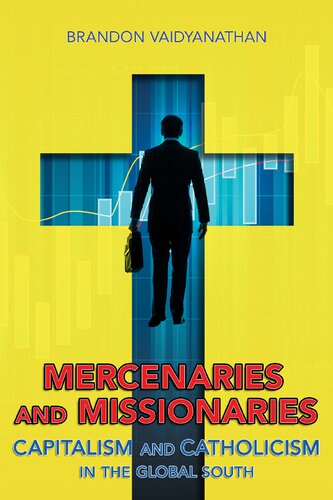

Most ebook files are in PDF format, so you can easily read them using various software such as Foxit Reader or directly on the Google Chrome browser.
Some ebook files are released by publishers in other formats such as .awz, .mobi, .epub, .fb2, etc. You may need to install specific software to read these formats on mobile/PC, such as Calibre.
Please read the tutorial at this link: https://ebookbell.com/faq
We offer FREE conversion to the popular formats you request; however, this may take some time. Therefore, right after payment, please email us, and we will try to provide the service as quickly as possible.
For some exceptional file formats or broken links (if any), please refrain from opening any disputes. Instead, email us first, and we will try to assist within a maximum of 6 hours.
EbookBell Team

4.8
64 reviewsMercenaries and Missionaries examines the relationship between rapidly diffusing forms of capitalism and Christianity in the Global South. Using more than two hundred interviews in Bangalore and Dubai, Brandon Vaidyanathan explains how and why global corporate professionals straddle conflicting moral orientations in the realms of work and religion. Seeking to place the spotlight on the role of religion in debates about the cultural consequences of capitalism, Vaidyanathan finds that an "apprehensive individualism" generated in global corporate workplaces is supported and sustained by a "therapeutic individualism" cultivated in evangelical-charismatic Catholicism.
Mercenaries and Missionaries uncovers a symbiotic relationship between these individualisms and shows how this relationship unfolds in two global cities―Dubai, in non-democratic UAE, which holds what is considered the world's largest Catholic parish, and Bangalore, in democratic India, where the Catholic Church, though afflicted by ethnic and religious violence, runs many of the city's elite educational institutions. Vaidyanathan concludes that global corporations and religious communities create distinctive cultures, with normative models that powerfully orient people to those cultures―the Mercenary in cutthroat workplaces, and the Missionary in churches. As a result, global corporate professionals in rapidly developing cities negotiate starkly opposing moral commitments in the realms of work and religion, which in turn shapes their civic commitment to these cities.